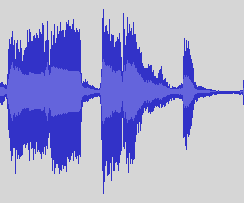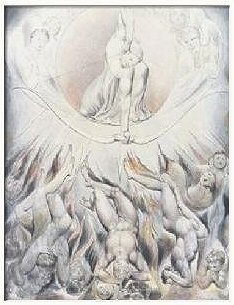The Hinge Around Which a Song Swings
 I'm not, Lord knows, a musician. But I do like to listen to music, and every now and then I can't help noticing something interesting.
I'm not, Lord knows, a musician. But I do like to listen to music, and every now and then I can't help noticing something interesting.I've been listening to one of my and Mrs. FLJerseyBoy's favorite soundtrack albums, from the 1991 film Henry and June. As you may know, the action in the film takes place in France (Paris, mostly) during the 1920s. (For purposes of this blog entry, that's really all you need to know about the film. If you're interested in finding out more about it, of course, you can always check the Internet Movie Database, and/or Wikipedia.)
Given the time and place, it's only natural that the soundtrack consist of 80-year-old music, whether by the original performers (like "I Found a Million-Dollar Baby," sung by Bing Crosby) or updated but still in keeping with the film's context and tenor.
Among the updated items on the soundtrack is the thirteenth, called "Je M'Ennuie." (Translated to English, this is, literally, "I'm bored." Perhaps it's got some idiomatic nuance beyond that, if you use the phrase in France.) This is a laaaaaaaannnguorous instrumental, arranged by Mark Adler for a trio: a throaty muted trumpet in the foreground, intro and background by a piano, and very subtly, for the most part, a drummer using brushes on the cymbal. It's that "for the most part" which interests me -- or rather, the exceptions to the rule.
When I started listening to this song the other day, I was in the car, alone, and sitting at a traffic light. Languor aside, it's a quite melodic tune, and it's easy to get into the gentle swing of it. It's also hard to ignore that trumpet, which is given such a major role that you almost forget the other instruments are there.
A little less than a minute into the song, the pitch is swinging like an autumn leaf in still air, groundwards: back and forth, down and down. And then all of a sudden something amazing happens: in the space of less than a second, everything stops, is silent, and the drummer wakes up and taps, very lightly, on his cymbal.
When I heard this the other day, my face broke into a big grin. I'm not sure why. The closest I've come was when I described the epiphany to Mrs. FLJerseyBoy; I referred her to the Mad Hatter's tea party in Alice in Wonderland. The following excerpt is from the book's Chapter 7; the Dormouse has been asleep (although occasionally singing or otherwise interjecting, while not really waking up) during the whole party:
"Suppose we change the subject," the March Hare interrupted, yawning. "I'm getting tired of this. I vote the young lady tells us a story."That's what the drummer is like at this point in the song: he suddenly wakes up, claims to have been participating all along, and immediately falls back into a slumber. At that point, the trumpet and piano -- but especially the trumpet -- goes right back up to the top of the stairs and begins another swinging descent, to a repeat of the whole cycle.
"I'm afraid I don't know one," said Alice, rather alarmed at the proposal.
"Then the Dormouse shall!" [the Mad Hatter and the March Hare] both cried. "Wake up, Dormouse!" And they pinched it on both sides at once.
The Dormouse slowly opened his eyes. "I wasn't asleep," he said in a hoarse, feeble voice: "I heard every word you fellows were saying."
The illustration at the top of this post is a partial screen capture taken from the Audacity sound editor program; it shows a segment of the song, from about 1:36 into it and running to 1:40 or so. This is the second appearance of the suddenly conscious drummer (not the one which hit me in the car); the cymbal tap is that last flare in the wave, to the right, just to the right of that fat bump of a note (and subsequent silence) from the other two members of the trip.
If you'd like to hear a sample which includes this "hinge note," I've got one in three formats:
This sample actually includes not only the portion illustrated above, but a decent section before it -- starting at around 1:25 -- to give you an idea of the "falling leaf" effect and the general rhythm and tone of the song. Here's the, uh, waveform -- is that the word? (like I said, IANAM) -- of the full sample, from which the illustration at the top is taken:



0 Comments:
Post a Comment
Subscribe to Post Comments [Atom]
<< Home